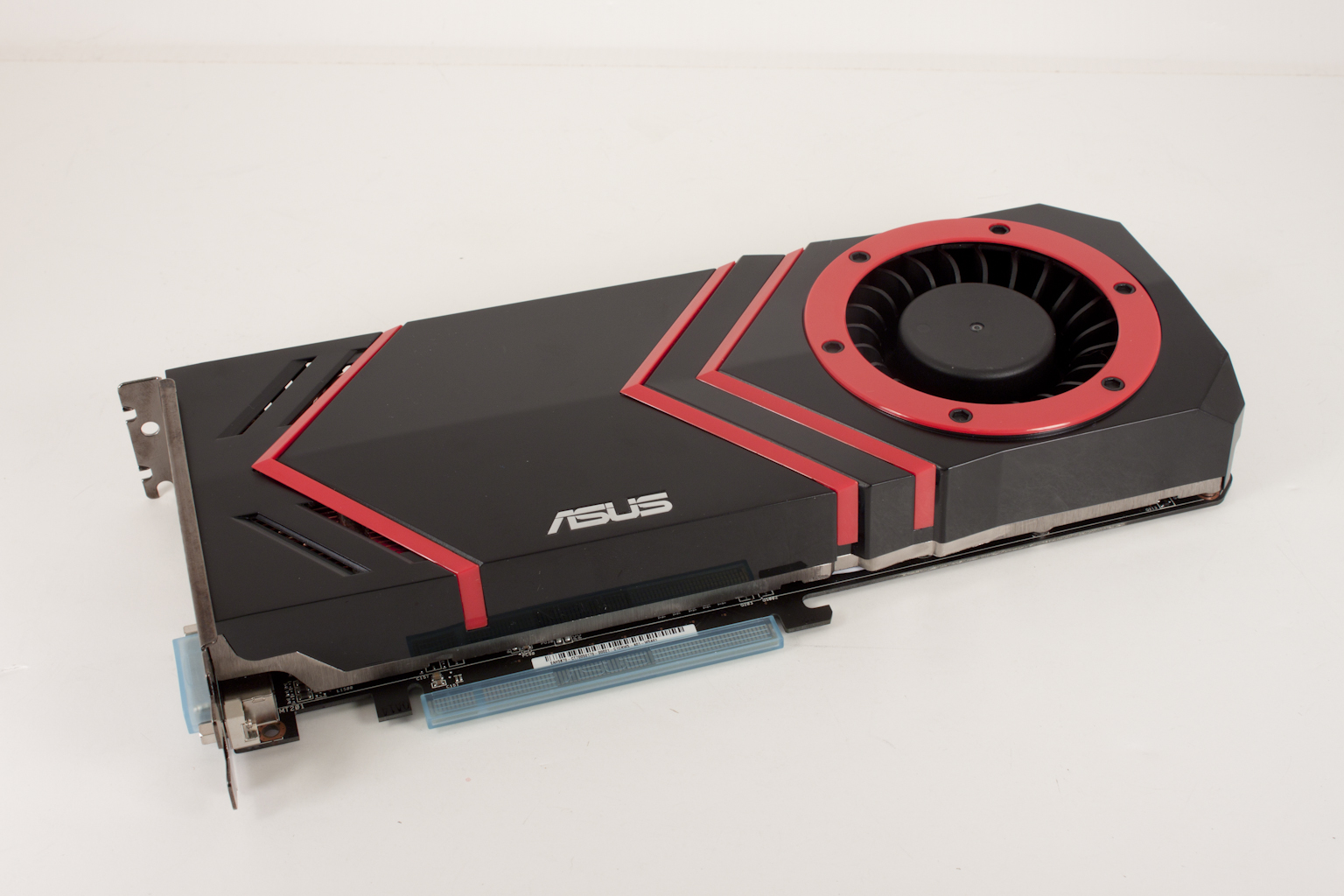Synthetics -
Synthetic tests are nice for many reasons; they offer an easy to use repeatable standard for testing. Most are readily available for free on the internet and can be used by anyone. But unfortunately they rarely tell the full story. Still they are an important part of the story and need to be included in any testing. Our typical synthetic tests are Futuremark’ s 3DMark Vantage, Furmark, Stalker Call of Pripyat, Direct Compute, and Unigine’s Heaven benchmark for both DX10 and DX11. With these three tests we can give you a good idea of base performance of the GPU in question.
3DMark Vantage -
3DMark Vantage is one of the benchmarks that everyone knows. It is used commonly for bragging rights. If you have the highest score, you win. The suite of tests covers the gamut of DX9, DX10, AI and Physics processing that you would normally see in gaming. We will run both the performance test as well as pushing the cards to complete the Extreme test run as well.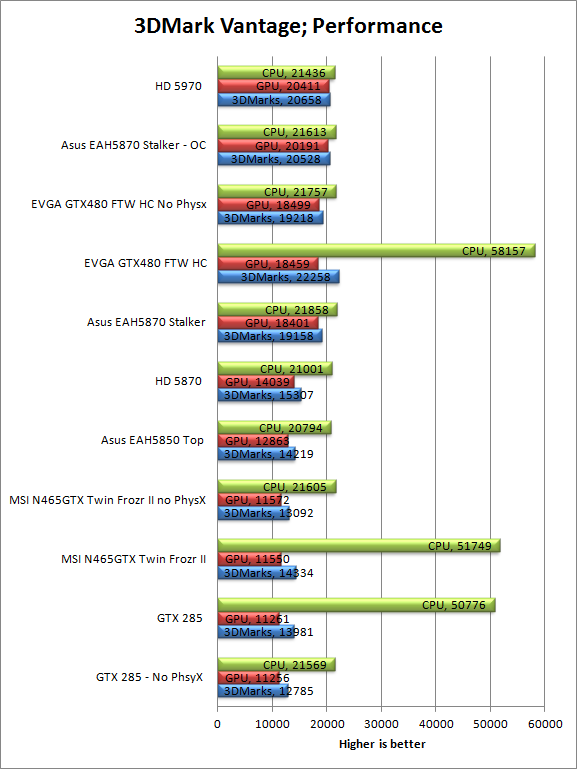
Well, well, look at this. The Asus EAH5870 Stalker COP edition GPU does very well right out of the box. In our performance run it jumps past the stock 5870 by a little more than 4300 points on the GPU score. It comes in just behind the GTX 480 from EVGA (58 points). When we kicked the GPU and memory up, well we see scores that rival the HD5970 trailing the massive dual GPU card by only 220 GPU points.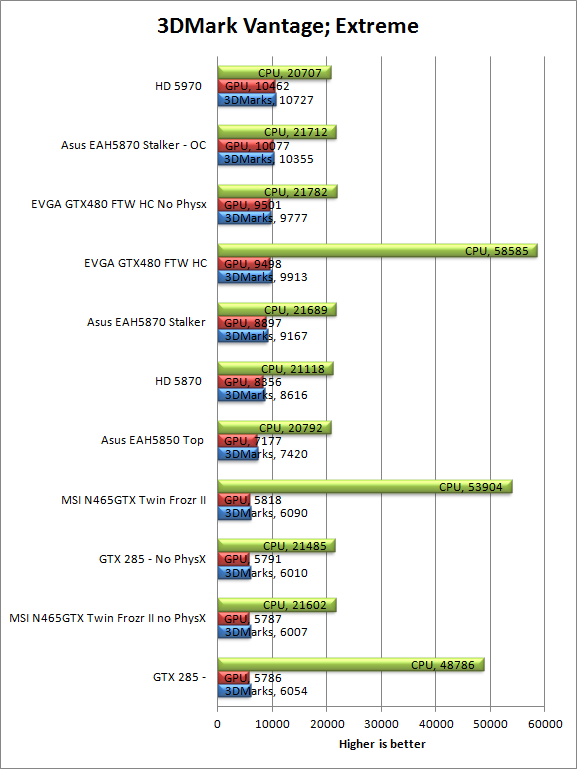
Under the load of the Extreme test the gap between the stock 5870 and the Stalker shrinks to only 541 points, and widens a little between the 5970 and the stalker to 385 points. The gap between the factory overclocked Stalker and the GTX480 also increases from 58 points to 601; still not a bad showing at all.
Furmark -
Furmark is a relatively new one and it designed to stress and heat up a GPU in order to tests its stability under load. It renders what looks like a hairy donut and rotates that view to increase the render load.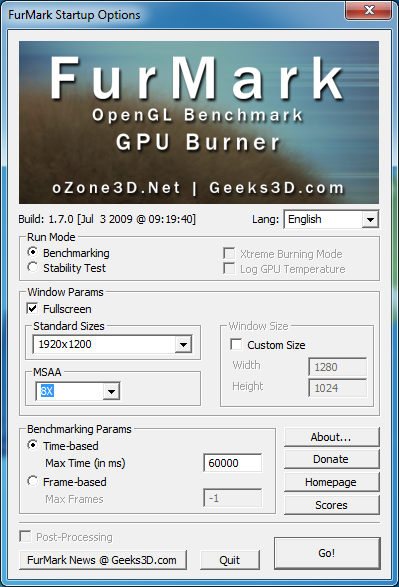
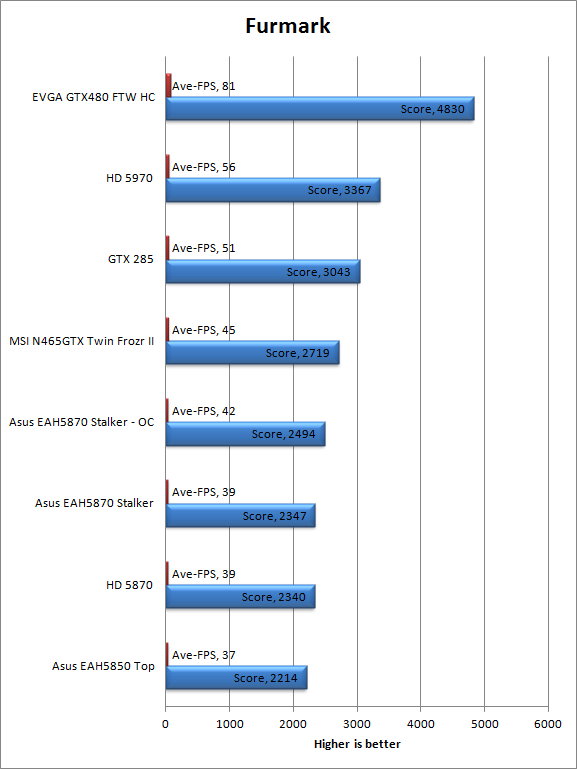
Furmark, well what can we say here. It is not especially kind to AMD. Maybe it is time to find a replacement for this as, to be honest, the numbers do not add up…
Unigine Heaven (DX 10 and DX11) -
Unigine’s Heaven bench was one of the first tests that offered a good measure of DX11 performance. As we still only have DX10 cards from nVidia we are going to run both flavors of the test.
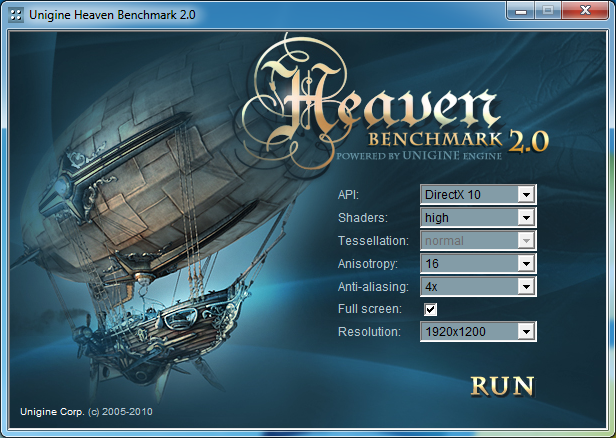 |
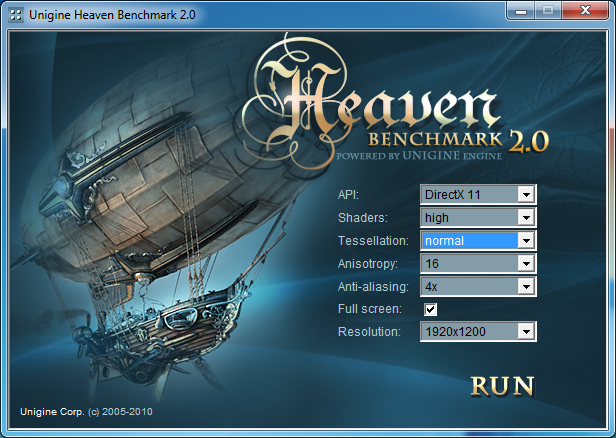 |
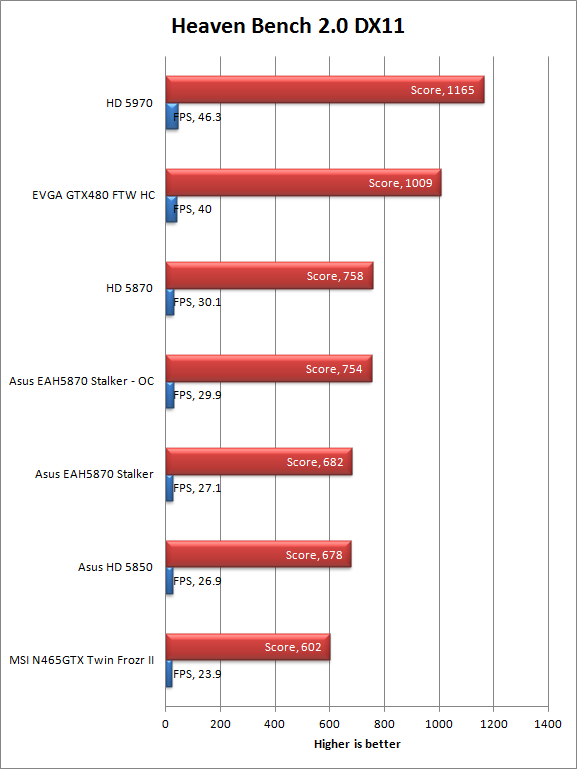
Our results here were disappointing to say the least. Even with the GPU overclocked to 1GHz we were still not faster than the stock HD5870 in both tests. However, there is a possibility that this is sofware related which is one of the reasons synthetic tests will never be conclusive.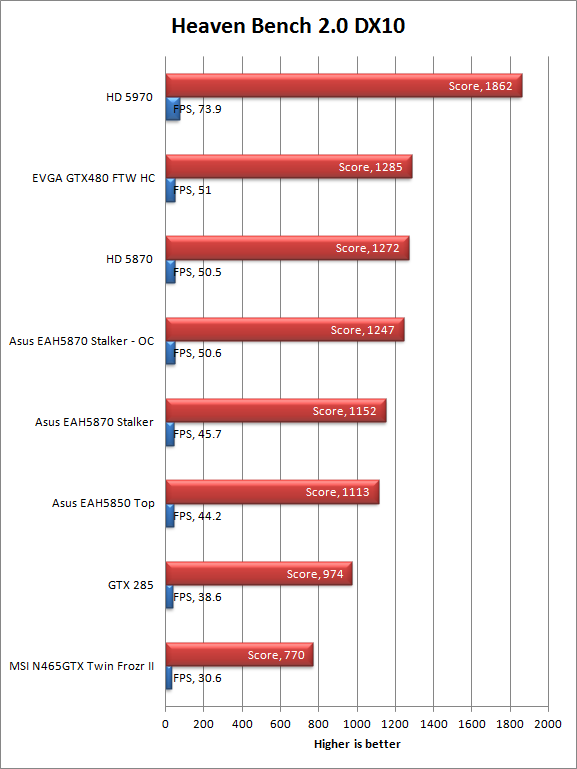
Stalker Call Of Pripyat Bench (DX10 and DX11) -
The Stalker Call of Pripyat test uses the stalker rendering engine and images. It is capable of emulating the most common effects from DX11 and DX10 in a run of different scenes. We ran our GPUs through both and have recorded the average frame rate below. We sorted this bench by the ‘SunShafts’ test as it appeared to be the toughest on the GPUs in question.
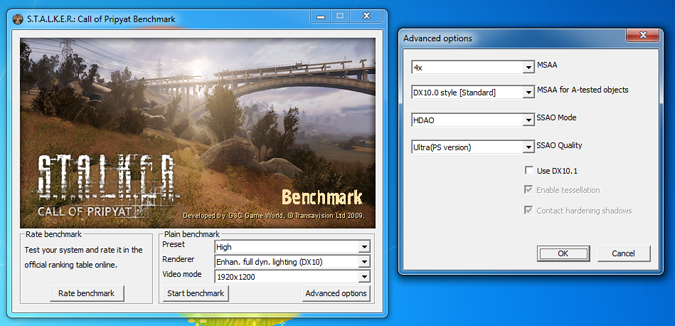 |
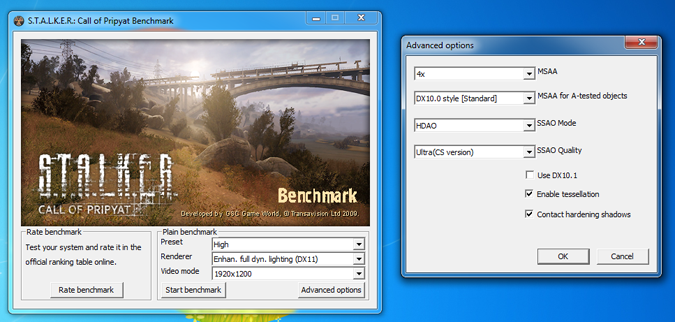 |
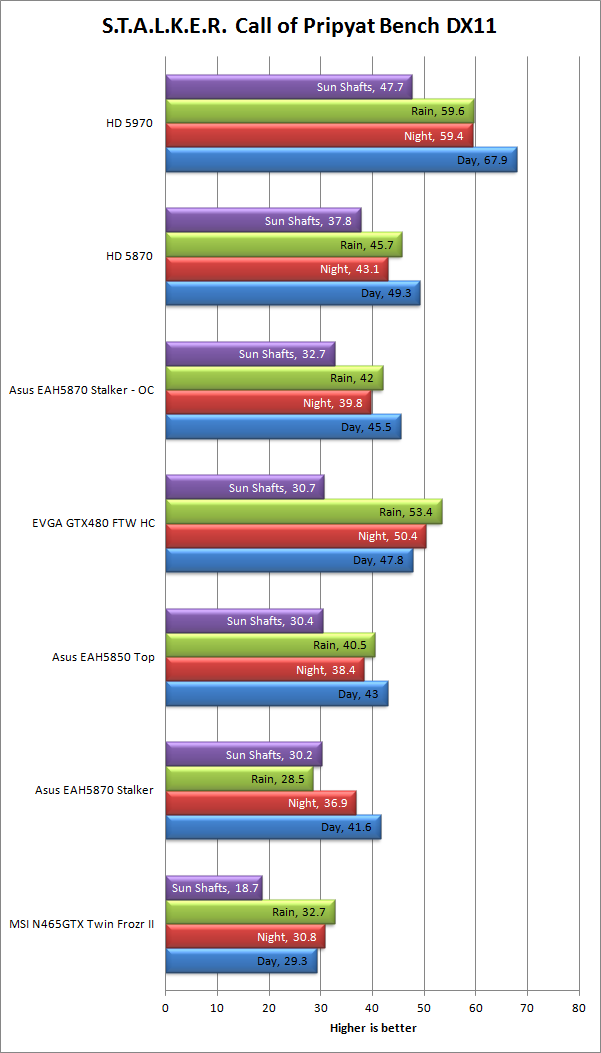
Now this is an odd one, using a benchmark based off of the game engine we find that the EAH 5870 Stalker COP edition does not do so well. For the DX11 testing it was behind the reference HD5870 for both the stock and overclocked runs. We are not sure what is going on here but the numbers appear to be off.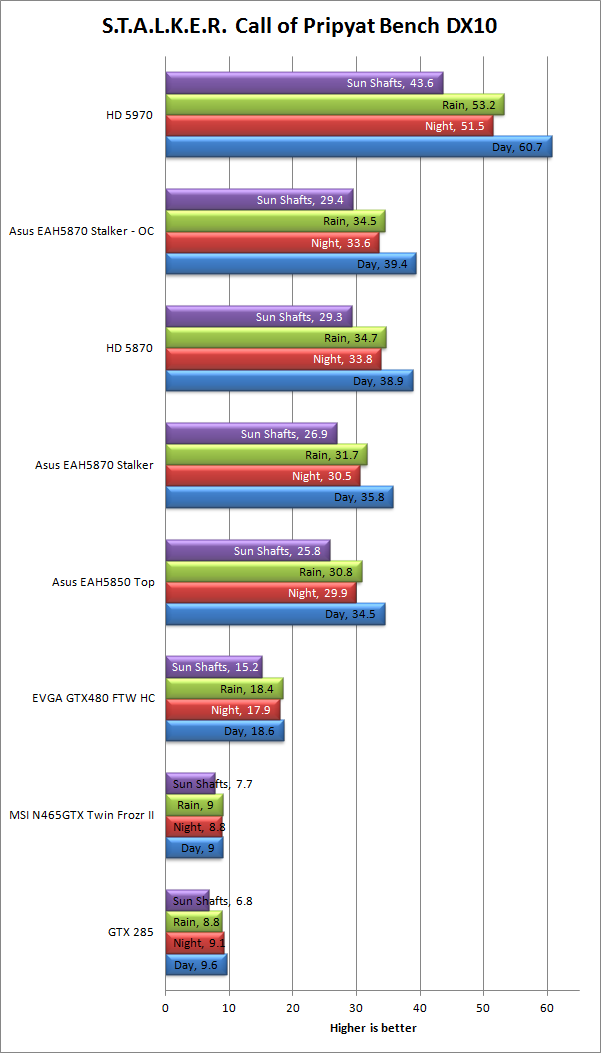
The DX10 numbers were a little more in line, but the factory overclocked EAH5870 lags behind at its “stock” speed.
Again we feel this is either a driver or a benchmark issue that is causing the card to give inaccurate results.
Synthetics Recapped -
We have noticed something a little disturbing. For some reason the EAH5870 V2 seems slower than the reference HD5870 when running DX11. In fact it seems like it is having a problem rendering some part of the DX11 feature set. We saw this with both the Heaven 2.0 Bench and the Stalker COP bench although the differences were minor (2-3FPS at most) they were still worrisome. We would have expected this GPU to outperform the reference HD5870 with ease. It is possible that there is something about these synthetics that cannot deal with the V2, but we are not certain about this. Of course the way to see if there is a DX11 issue is to run some DX11 games through it and see what we find.

